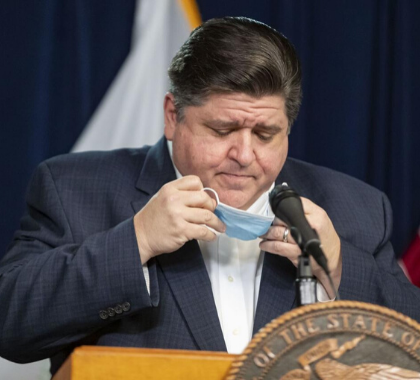Late Wednesday Gov. J.B. Pritzker filed an emergency motion in the Illinois Supreme Court in Bailey v. Pritzker seeing direct and expedited appeal to that court, bypassing the Illinois Appellate Court.
The petition was filed by the office of Kwame Raoul, the Attorney General of Illinois. The principal authors appear to be Deputy Solicitor General Sarah Hunger and Assistant Attorney General Nadine Wichern. Their work was rapid and is ably presented.
You will find a copy of the governor’s motion here as a pdf file.
They contend that under the relevant statute the governor’s emergency powers are triggered whenever he declares that a disaster “exists.” Each time he declares that it “exists,” they contend, his powers follow for 30 days from the date of the declaration. If the disaster continues to “exist,” they reason, he can effectively extend his powers by repeatedly declaring its existence.
They anticipate the counterargument that the point of the 30-day limitation is to allow the legislature to convene and express the will of the people in the matter, by noting (a) that the legislature hasn’t convened (something that Mike Madigan wants to avoid at all costs, because there is nothing to be gained politically by having the Democratic majorities in both legislative houses making decisions that, one way or the other, are bound to offend someone) and (b) despite issuances by prior governors of successive declarations in particular disasters, the General Assembly has never amended the statute to impose an explicit prohibition on the practice.
They also argue that, under the Illinois Constitution, the governor wields vast police powers which are subject to limitation only when they are “arbitrary, oppressive and unreasonable.”
Finally, turning to the particular circumstances of the Bailey case, brought by an individual in his personal capacity who happens to be a state legislator, the motion argues that he didn’t need judicial relief at all. Because Bailey is a state legislator, the governor’s motion argues, he is a “government employee” and, as such, “he is ‘categorically exempt’ from the Executive Orders.”
The candor is refreshing. It is rare to see a public official openly resting upon the justification of Napoleon, the despot in George Orwell’s novel, Animal Farm: “Some pigs are more equal than others.”





